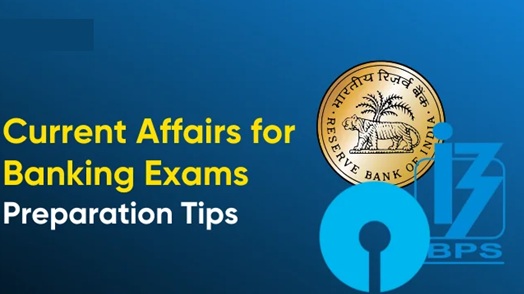Preparation for competitive exams often involves a balance between conceptual clarity and updated information. Among the most dynamic components of preparation is the news-based section, which evolves daily and challenges consistency. The changing nature of headlines and government updates often makes it hard for candidates to absorb and recall them with confidence.
Candidates who plan their approach systematically tend to perform better when recalling essential news. This is why understanding how to analyze and retain current affairs for bank exams is critical. This article will explore the techniques that help improve retention, build context, and make revision faster and smarter.
Focus on Relevance First

Not every piece of news holds the same value during exam preparation. A student who reads everything available often ends up confused. Instead of trying to remember all topics, it helps to categorize information. Examine trends in previous questions to identify which themes appear repeatedly.
These could include economic policies, financial organizations, appointments, or major government schemes. Prioritizing these categories brings structure to daily reading and sharpens focus on what matters most.
Build a Weekly Revision Cycle
Studying something once may help in short-term recall, but memory fades quickly without reinforcement. Weekly review sessions prevent gaps from building up. Revisiting important topics ensures deeper understanding and better recall during the exam. Regular revision cycles also reduce the stress of last-minute cramming and make preparation more manageable.
Divide content into weekly folders or summaries. These folders may include financial headlines, new bills passed, budget highlights, and international events. Repetition across these folders builds mental connections between topics, which helps in both objective and descriptive responses.
Rely on a Structured PDF Format
One of the easiest ways to manage news content is by using a well-organized PDF resource. These documents often group updates by category, such as national, international, economic, or sports, which saves time and simplifies revision. A monthly compilation offers an archive-style format, which is especially useful during the final preparation stage.
A PDF designed for exam aspirants often follows a question-focused approach. This allows readers to study the facts while also understanding how questions may appear in actual papers. With a printable or downloadable version, aspirants can revise even when offline or traveling.
When paired with handwritten notes or summary charts, these PDFs provide both breadth and depth. This mix of structured information and personalized recall tools enhances the preparation experience and improves retention.
Create Connections with Background Stories
Facts are easier to remember when connected to stories. Rather than treating news items as isolated points, linking them to background events strengthens memory. For example, remembering a policy becomes simpler when the cause or motive behind it is understood.
Understanding the chain of events leading to a financial decision helps in forming a complete picture. These narratives turn lists into memorable sequences. When data is structured into cause-and-effect chains, the brain stores it with better clarity.
Use Mind Maps or Visual Charts
Visual learners benefit from graphical tools that lay out complex information in a simplified format. Mind maps, charts, and color-coded tables make it easier to differentiate between similar-looking events or dates. For instance, making a chart that separates domestic appointments from international ones helps reduce confusion.
Color codes for finance, sports, and science news improve scanning ability during final revision. These tools offer a snapshot of bulky topics in a condensed and visually appealing way. They also make revisions less monotonous, keeping learners engaged and focused for longer durations.
Current affairs for bank exams require more than daily reading—they demand consistent tracking, categorization, and smart revision. Candidates who follow a structured review method, create meaningful links, and test themselves regularly tend to perform better. With focused study methods and a bit of planning, even dense information becomes easier to manage. Maintaining accuracy across topics becomes more achievable when preparation is both methodical and mindful.